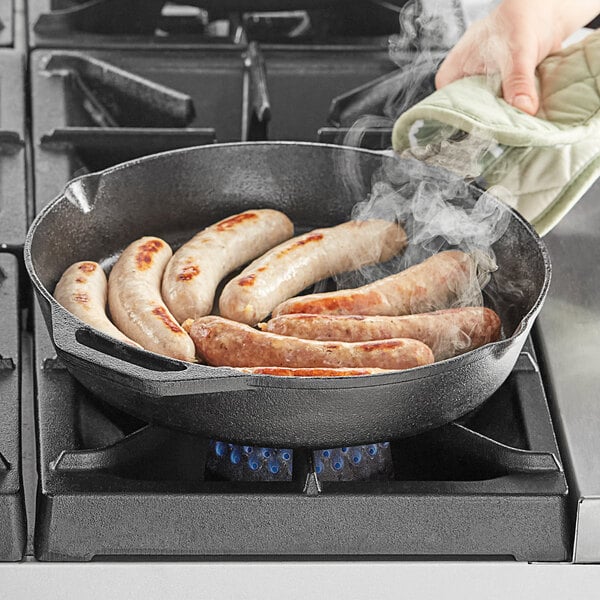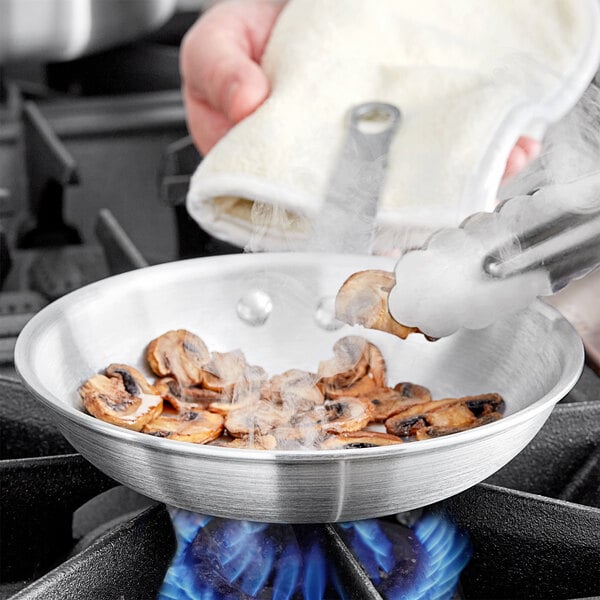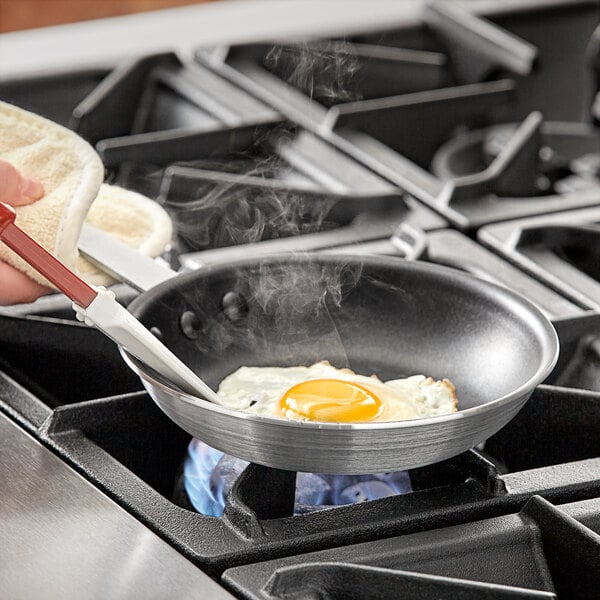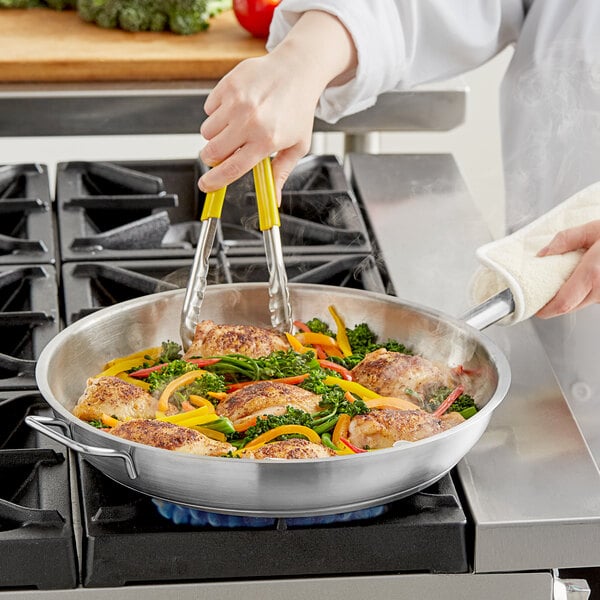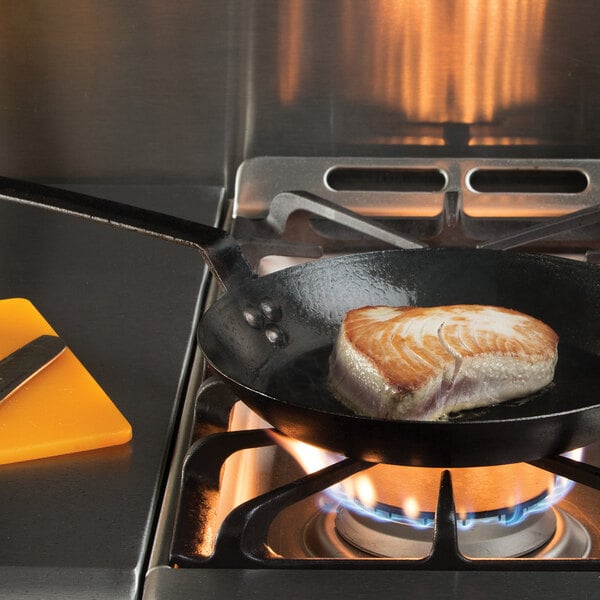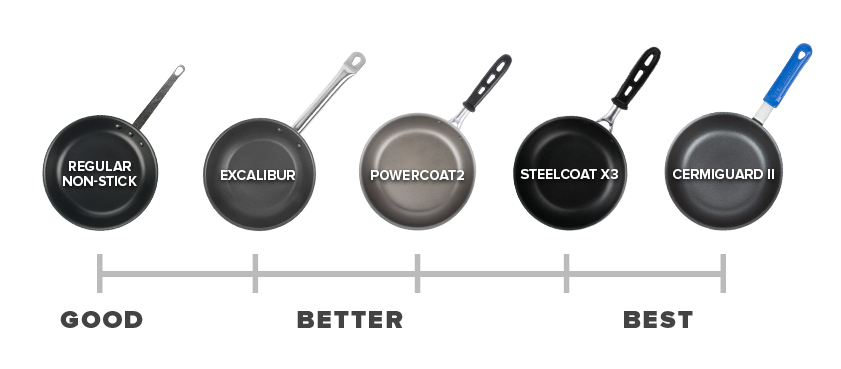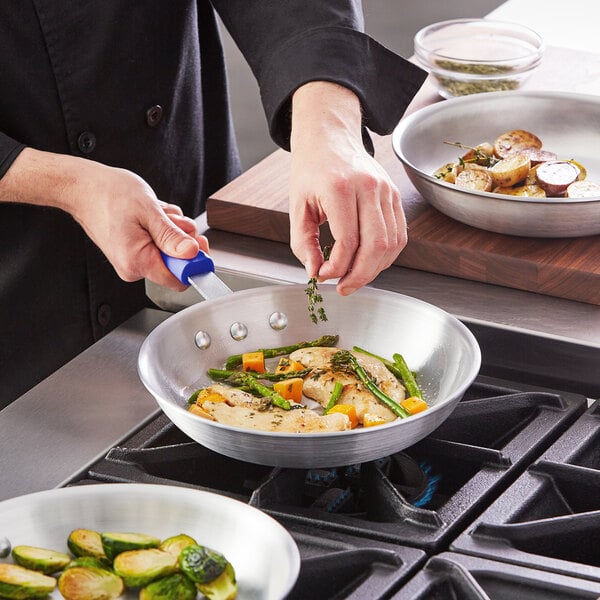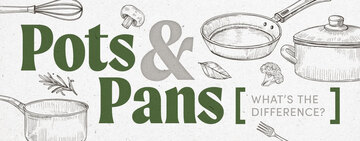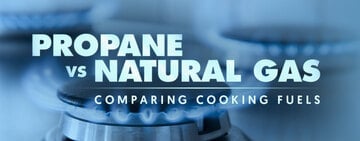Offering excellent heat conduction, aluminum frying pans dissipate heat quickly for efficient, even cooking. Uncoated aluminum frying pans have a stick-, rust-, and corrosion-resistant surface and should only be used to cook low-acidic foods since acidic foods, such as tomato paste, citrus, and vinegar, react with aluminum and can alter the flavor of your food. Many professional aluminum frying pans are hard-anodized or feature a non-stick coating to make them non-reactive. Aluminum pans are not compatible with induction cooktops since aluminum is not magnetic.
Can You Put Aluminum Pans in the Oven?
As long as it is labeled oven-safe, aluminum pans are safe to use in the oven. Aluminum has a high melting point of 1,221 degrees Fahrenheit so it can handle high cooking and baking temperatures.
Are Aluminum Pans Dishwasher Safe?
No, aluminum pans should be hand-washed only. Aluminum cannot withstand the high heat of the dishwasher or harsh dishwashing chemicals, which can tarnish or stain the surface.
Can You Use Metal Utensils on Aluminum Pans?
You cannot use metal utensils on aluminum pans. Since aluminum is a soft metal, using metal utensils on an uncoated aluminum surface can damage its surface. You can use metal utensils, except for sharp kitchen knives, on hard-anodized aluminum pans. The anodization process adds a thick layer to the aluminum, which increases its durability and scratch resistance.
How to Clean Aluminum Pans
Once the pan has cooled, hand-wash the pan in warm water with mild dish detergent and a sponge. Use the rough side of the sponge or wooden spatula to scrape off stuck-on food bits. Never use steel wool or other abrasive scrubbers to clean the pan, as this can scratch the metal.



